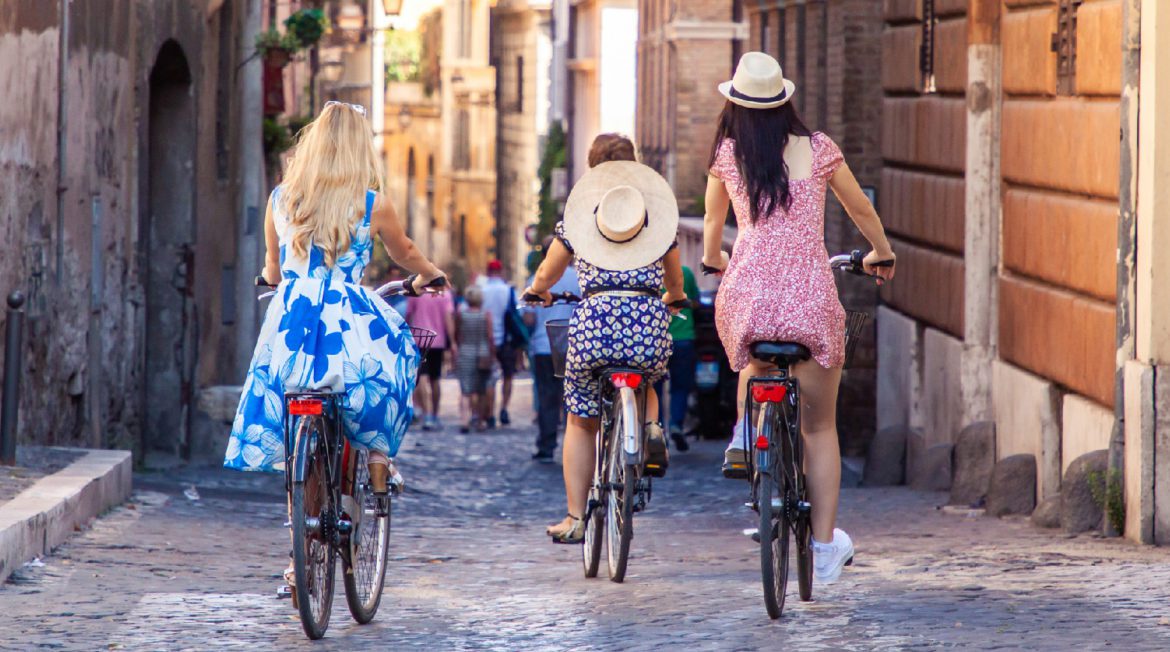Travel helps us learn about ourselves and our place in the world. We get a glimpse into other cultures, other lives, and other histories. We can explore new cities, relax at the beach, or witness breathtaking landscapes and wildlife. It’s incredible! If we are privileged enough to experience this type of travel, it’s important we steward this gift responsibly.
“Overtourism” has become a major problem for the environment and for the communities that it impacts. It can increase pollution, put pressure on endangered species, lead to soil erosion, and put enormous stress on local land use. It puts major pressure on local water and energy systems. It contributes to 5% of global greenhouse gas emissions. It often displaces local people, making their own homes unaffordable or unlivable.
The good news is that more and more people are becoming aware of the effects of unsustainable and unethical tourism. Activists are standing up against inappropriate voluntourism trips or major cruise liners that degrade and exploit vulnerable economies. And as the saying goes, once we know better, we can do better.
These are the three simplest ways to be a more mindful, conscientious, and sustainable tourist on your next vacation.
1) Research your destination
The No. 1 way to be a better tourist is to learn about the place you are traveling to, what is going on there, and what the local residents are saying.
If local groups or native people are by and large asking tourists to stop coming for the time being, heed this warning. Some popular tourist destinations become so heavily trafficked that the area cannot support the amount of travelers. The water and electricity infrastructure might not be enough to support the summer tourist season, for example. In this case, it’s probably a good idea to find a location prepared to handle mass tourism, and save the other destination for another time when they are ready for visitors.
It could also be the case that local tour guides and those working in the tourism industry have specific messages for visitors to the area. They may want to avoid the spread of an invasive species and have specific rules for cleaning your shoes before and after hikes. They may want to avoid the bleaching of coral reef ecosystems and ask that you use a specific sunscreen. Being aware of these nuances supports the ongoing existence of healthy tourism in the destination you’re visiting.
Another common occurrence stemming from a lack of research might surprise you: hospital visits. Tourists who aren’t fully aware of the danger of the excursions they embark on often cost thousands of dollars in emergency rescue fees from local governments and health services. For example, thousands of tourists take hikes on dangerous paths and require rescue because of their lack of preparation, dehydration, or injury. This can take precious resources away from local communities. Always research the excursions you plan to embark on during your stay to ensure you are as prepared as possible.

By researching information about a place you are planning to stay, you wre showing basic respect for the location and the people who live there year-round. It also enriches your personal experience to have background knowledge, rather than going in blind. A common mistake that travelers make is to consider their destination as a personal playground for their own fulfillment and use. While the places we travel to can be amazing locations for self discovery and exploration, they are also places in their own right, and deserve respect.
Consider using a sustainability travel agent or a booking site specially designed for sustainable travel, like bookdifferent.com. In most cases, spending 30 minutes online can bring you a wealth of information about tourism and sustainable tourism in the destination you’re planning to visit. It could even lead you to discover exciting new ideas for activities or things to see – without disrupting local livelihoods or ecosystems.
2) Choose walking or biking
While traveling, try to reduce your emissions contributions. Of the 5% of global emissions that tourism contributes to, 90% of that is transportation. You can make a huge difference by changing the way you travel.
In many international cities, public transit is amazingly connected and affordable. Whenever possible, look into the trains, buses, trams, and ferries at your vacation spot. Traveling like a local might lead you to discover more local, authentic spots to visit, too.
In general, choose walking or biking over vehicle transport. If you are taking a trip on the water, opt for a sailboat instead of an engine-powered boat. Little choices like this can really add up to reduce the emissions contribution of your trip. Avoiding planes altogether, and using trains instead, is another way to eco-travel.
3) Make one small sustainable change every trip
There are countless ways to be a more sustainable tourist, and it’s easy to get overwhelmed. To avoid burnout, try discovering one sustainable tourism tip each year and implementing it on your family’s vacation. It can be hard to change everything at once. By slowly increasing your awareness and knowledge about sustainable travel, you’ll soon become a global citizen with respect and gratitude for all cultures, places, and people.

Maybe for your next vacation, you will check out a place much closer to home to reduce your greenhouse gas emissions. Maybe you will focus on reducing your single-use plastic waste by using more reusable and biodegradable items.
Maybe you will get off the beaten path a little bit. You’ll support local economies and be able to have more unique experiences. Smaller cities and more rural areas have a lot to offer.
You could try visiting more parks and protected areas to support animal research and conservation. You could try offsetting your carbon footprint by using an online calculator and making the appropriate donation. You could even try conserving your water and energy use while at your accommodation.
Even just a small bit of effort and awareness can go a long way in places that have been beaten down by disrespectful tourists. Obviously, obeying local laws and guidelines is important. Leaving a place better than we found it is even better. Honoring and respecting the local people is essential. Whatever small change you decide to make, know that every little bit makes a difference to the environment and to the local community.

